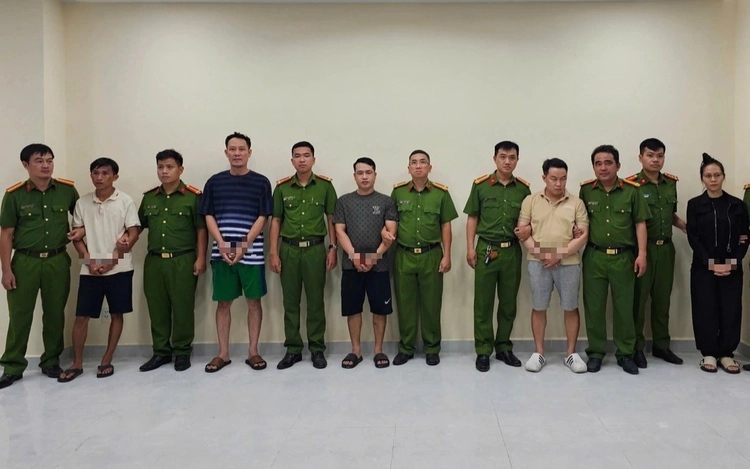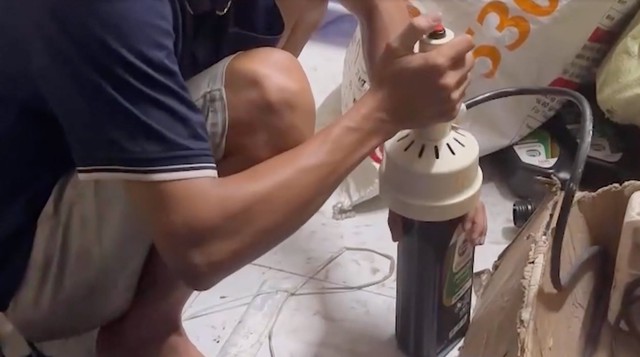Ho Chi Minh City police bust counterfeit motor oil ring selling 220,000 fake Castrol, Honda products
Ho Chi Minh City police have broken up a counterfeiting operation accused of producing and distributing more than 220,000 fake motor oil products under major brands including Castrol, Motul, Honda and Yamaha, authorities said on Saturday.

Suspects in a counterfeit motor oil ring are detained by Ho Chi Minh City police. Photo: Ho Chi Minh City police via Tuoi Tre
Investigators have charged and detained five suspects for "producing and trading in counterfeit goods," according to a statement from the municipal police.
The group includes Nguyen Van Khanh, 32, of Quang Ngai Province; Nguyen Quoc Bao, 45; Truong Van Long, 30; Nguyen Thanh Tan, 34; and Tan's younger sister, Nguyen Thi Kieu Trang, 30.
According to police, Khanh rented a house in Tan Thoi Nhat Ward, District 12, where he and others mixed unbranded motor oil of unknown origin with small amounts of genuine products.
The mixture, in a 70-to-30 ratio, was repackaged in containers bearing counterfeit labels of major motor oil brands including Castrol, Motul, Honda and Yamaha.
Finished products were sealed to resemble authentic items and distributed to the market, police said.
Tan allegedly sold the counterfeit oil through his retail store in Binh Thanh District, while Trang managed online sales on e-commerce platforms such as Shopee and Lazada.

Nguyen Van Khanh demonstrates how fake motor oil was bottled at an illegal facility in Ho Chi Minh City. Photo: Ho Chi Minh City police via Tuoi Tre
Police raided the operation on Wednesday afternoon, catching the group in the act of producing and transporting fake motor oil on Le Thi Anh Street in District 12.
A nearby house was searched, where officers seized 1,987 bottles and cans packed in 73 boxes, all labeled under the affected brands.
Equipment and labels used for production were also found on site.
A second search at a warehouse on No Trang Long Street in Binh Thanh District yielded another 3,075 counterfeit bottles, along with sales records and invoices indicating the scale of the operation.
During questioning, the suspects admitted to the illegal activity, police said.
Investigators believe the ring had been active for over a year.
From February 2024 until the bust, more than 220,000 counterfeit products were sold across multiple provinces using e-commerce platforms and delivery services.
Police estimate the scheme generated tens of billions of dong in illicit profits.












